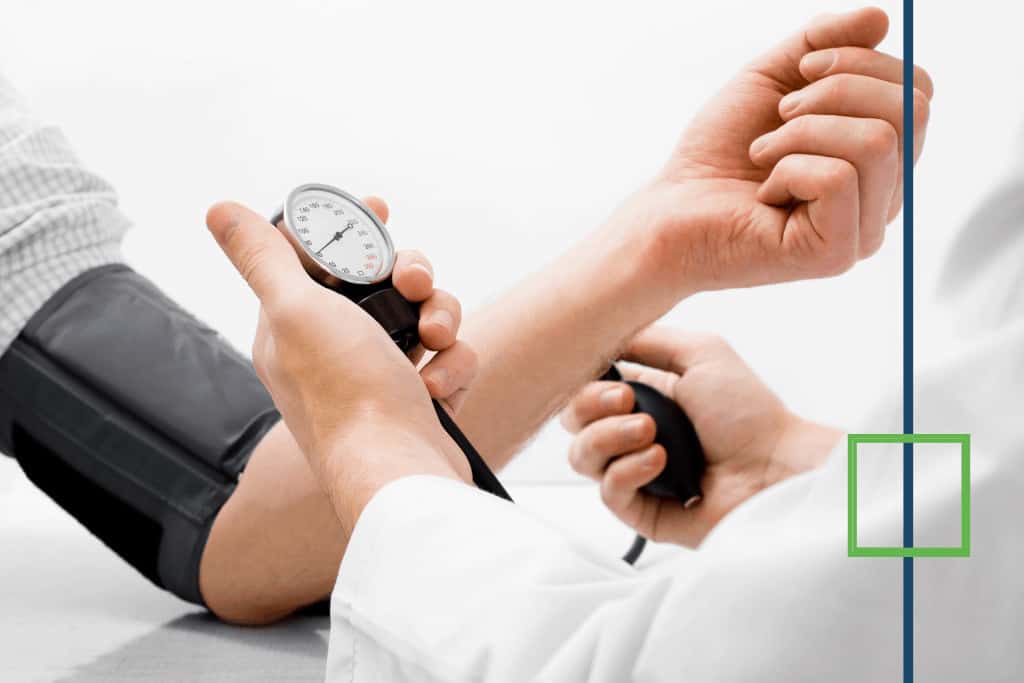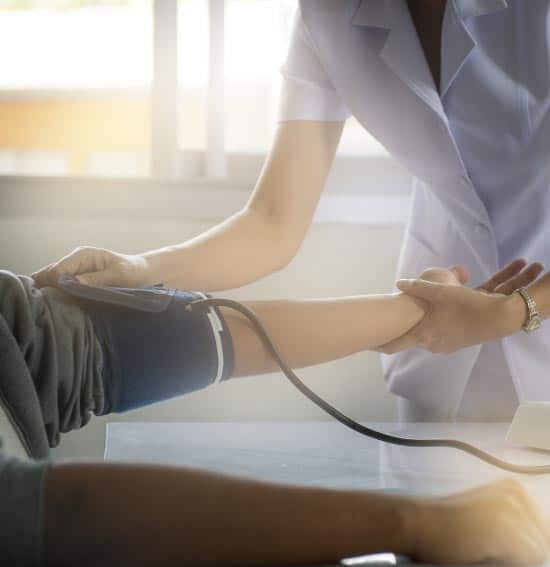Alcohol and Kidney Disease
The kidneys have a vital job as a filter for harmful toxins and substances. One of these substances is alcohol. The kidneys of heavy drinkers have to work harder. Alcohol causes changes in the kidney’s function and makes them less able to filter the blood. Alcohol also affects the ability to regulate electrolytes and fluid in the body. When alcohol dehydrates (dries out) the body, the drying effect can affect the normal function of organs and cells, including the kidneys. In addition, alcohol can disrupt hormones that affect kidney function.
Drinking alcohol affects many parts of the body, including the kidneys. Excessive drinking–more than four drinks daily—can affect a person’s health and worsen kidney disease. Regular heavy alcohol consumption has been found to double the risk of chronic kidney disease, which does not go away over time. Even a higher risk of kidney problems has been found for heavy drinkers who also smoke. Smokers who are heavy drinkers have about five times the chance of developing chronic kidney disease than people who don’t smoke or drink alcohol to excess.

Dehydration
Alcohol has diuretic properties that lead a person to urinate more often. This leads to dehydration, especially with extreme alcohol use. Alcohol affects the kidneys’ function to maintain water balance and electrolytes in the body. This increases the risk of forming kidney stones and results in damaged kidney function. Regular dehydration leads to a greater risk for these damaging effects. Treat dehydration by drinking lost fluids and electrolytes, such as a sports drink with a carbohydrate solution and electrolytes. Avoid sugary beverages. In some cases, dehydration needs a visit to the doctor.
Kidney Stones
Kidney stones may form because of alcohol-induced dehydration. Drinking alcohol if you already have kidney stones may lead them to move quickly, increasing or contributing to kidney pain. It may be possible to treat small kidney stones by taking medication, drinking more water, or using home remedies.
Alcohol Liver Disease and Chronic Kidney Disease
The liver disease makes you more likely to experience discomfort or pain after alcohol consumption. This is particularly possible if your liver is affected by alcoholism. Alcohol liver damage can also affect blood flow to the kidneys and be less effective in filtering blood.
To treat liver diseases, such as alcoholic cirrhosis and alcoholic hepatitis, your doctor may suggest that you lose weight, quit drinking alcohol, and follow a nutritious and healthy diet. Some cases of alcoholic liver disease may need surgery or medications. In addition, a liver transplant may be necessary in cases of liver failure.
Alcohol and Kidney Infection
A kidney infection is a type of urinary tract infection (UTI). This disease is formed in the urethra or bladder and travels to one or both kidneys. The condition and symptoms of a urinary tract infection may worsen after drinking alcohol. If you have a kidney infection, drink plenty of water and consult your doctor straight away. You can use pain medication to relieve discomfort. Severe or recurring kidney infections may need surgery or hospitalization.
Get Help. Get Better. Get Your Life Back.
Searching for Accredited Drug and Alcohol Rehab Centers Near You?
Even if you have failed previously and relapsed, or are in the middle of a difficult crisis, we stand ready to support you. Our trusted behavioral health specialists will not give up on you. When you feel ready or just want someone to speak to about therapy alternatives to change your life call us. Even if we cannot assist you, we will lead you to wherever you can get support. There is no obligation. Call our hotline today.
(844) 597-1011Alcohol and Kidney Disease Symptoms
If you drink consistently, it’s inevitable that, over time, drinking will begin to impact the functions of your kidneys. Since even moderate drinking shows immediate functional and physical changes to these vital organs, it’s advised to keep drinking to a minimum. However, if drinking continues, the kidneys will form to accrue damage over time. Note that kidney disease does not happen all at once but is a slow and gradual process. Eventually, the body will begin to fill with fluids and waste that the kidneys can no longer process.
The areas surrounding the kidneys may feel sore after drinking alcohol. This is the area under your ribcage, at the back of your abdomen, on both sides of your spine. This pain may be felt as a sudden, sharp, stabbing pain or more of a dull ache. It may be severe or mild and can be felt on one or both sides of the body. The pain in your kidneys may be felt in the lower or upper back or between the lower ribs and buttocks. The pain may be felt immediately after drinking alcohol or after you’ve stopped drinking. Sometimes it gets worse at night.
The following kidney disease symptoms should be noted, monitored, and reported to a healthcare professional immediately. If discovered early enough, kidney disease can be treated, and you may even be able to have a complete recovery.
The symptoms include, but are not limited to, the following:
- Excessive or minimal urination
- Sleep disturbances
- Chest pain
- Swollen feet and ankles
- Incessant itching
- High blood pressure
- Nausea and vomiting
- Lack of appetite
- Blood in the urine
- Loss of appetite
- Fever
How Alcohol Affects Your Kidneys
The kidneys have an important function to fill. They filter waste from the blood, regulate the balance of water and minerals in the body and produce hormones. When a person heavily drinks alcohol, the kidneys have to work harder to filter out the alcohol. There are cases, binge drinking — five or more drinks at a time — can cause a sudden drop in kidney function called acute kidney injury. This serious condition happens when toxins from alcohol build up in the blood so fast the kidneys can’t maintain the proper fluid balance. Though it’s reversible with treatment, it can increase the risk of developing chronic kidney disease.
Effects on Body Fluid Volume and Blood Pressure
Excessive drinking can also affect your blood pressure. Individuals who consume too much alcohol are more likely to have high blood pressure. And medications for high blood pressure can have harmful interactions with alcohol. High blood pressure is a typical cause of kidney disease.
More than two drinks a day can increase your chance of developing high blood pressure. In addition, drinking alcohol in these amounts is a risk factor for developing a sign of kidney disease protein in the urine (albuminuria).
By promoting liver disease, chronic drinking adds to the kidney’s job. The blood flow rate to the kidneys is usually kept at a certain level so that the kidney can filter the blood well. Established liver disease impairs this critical balancing act. Most patients in the United States diagnosed with both liver disease and associated kidney dysfunction are alcohol dependent.


Get Your Life Back
Find Hope & Recovery. Get Safe Comfortable Detox, Addiction Rehab & Dual Diagnosis High-Quality Care.
Hotline(844) 597-1011Effects on Fluid and Electrolyte Balance
One of the main functions of the kidneys is to regulate both the composition and the volume of body fluid, including electrically charged particles (i.e., ions), such as potassium, sodium, and chloride ions (i.e., electrolytes). However, the ability of alcohol to increase urine volume (i.e., its diuretic effect) alters the body’s fluid level, causing dehydration and producing an imbalance in electrolyte concentrations. These effects vary depending on factors such as the duration and amount of drinking, the drinker’s nutritional status, and the presence of other diseases.
Fluid
Alcohol can produce urine flow within 20 minutes of intake; as a result of urinary fluid losses, the concentration of electrolytes in blood serum increases. These changes can be dangerous in alcoholics, who may show clinical evidence of dehydration.
Increased urine flow results from alcohol’s acute inhibition of the release of antidiuretic hormone (ADH), a hormone also known as vasopressin, which normally promotes the formation of concentrated urine by inducing the kidneys to conserve fluids.
In the absence of antidiuretic hormone (ADH), segments of the kidney’s tubule system become impermeable to water, thus preventing it from being reabsorbed into the body. A rising blood alcohol level disrupts this regulatory response by suppressing ADH secretion into the blood.
Potassium
Normally the kidneys are a major route of potassium ion excretion and serve as an important site of potassium regulation. Alcohol consumption historically has been found to reduce the amount of potassium excreted by the kidneys, although the body’s hydration state may help determine whether potassium excretion will increase or decrease in response to alcohol. Levels of potassium, like those of sodium, also can affect the way the kidneys handle fluid elimination or retention.
Potassium depletion has been linked to hyponatremia For example, potassium losses may stimulate antidiuretic hormone (ADH) activity, thereby increasing the amount of fluid reabsorbed and causing the body’s sodium concentration to decrease as a result. Alternatively, potassium losses may increase thirst through hormonal mechanisms, thereby promoting increased fluid intake.

Sodium
The serum sodium level is determined by the balance of fluid in relation to that of sodium. Not enough fluid in the body results in a sodium concentration that is too high (i.e., hypernatremia). Whereas excessive amounts of fluid produce a sodium concentration that is too low (i.e., hyponatremia). Hyponatremia may cause neurological symptoms, impaired mental activity, and, in extreme instances, seizures).
“Beer drinkers’ hyponatremia” is a syndrome that appears to result from an intake of excessive fluid in the form of beer. Hyponatremia was observed in five patients who drank at least 5 liters of beer per day (L/d) without any other nourishment. (For comparison, a person’s normal fluid intake averages a little more than 2 L/d.) Because beer contains few dissolved substances (i.e., solutes), such as sodium, these patients apparently lacked a sufficient quantity of solutes to stimulate the kidneys to eliminate excess fluid.
Phosphate
Low blood levels of phosphate commonly occur acutely in hospitalized alcoholic patients. Indeed, when the condition does not appear, clinicians treating alcoholics should suspect that another problem is masking the recognition of low phosphate levels, such as ongoing muscle dissolution, excess blood acidity (i.e., acidosis), and inadequate blood volume, or kidney failure. For severely alcoholic patients who eat poorly, such a nutritional deficit may be an important contributor to hypophosphatemia.
Another potential cause of hypophosphatemia in alcoholic patients is hyperventilation, which can occur during alcohol withdrawal. Prolonged rapid, shallow breathing resulted in excessive loss of carbon dioxide and decreased blood acidity (i.e., alkalosis), which in turn activates an enzyme that enhances glucose breakdown.
Calcium
Alcohol consumption markedly increases calcium loss in urine. In severely ill alcoholics, low blood calcium levels occur about as often as low blood levels of phosphate and can cause convulsions or potentially life-threatening muscle spasms when respiratory muscles are involved.
Alcoholics with liver disease often have abnormally low levels of a calcium-binding protein, albumin, and also may have impaired vitamin D metabolism; either of these two factors could result in reduced blood levels of calcium (i.e., hypocalcemia). Muscle breakdown and magnesium deficiency are other potential causes of hypocalcemia in alcoholics.
Magnesium
Chronic Alcoholism is the leading cause of low blood levels of magnesium (i.e., hypomagnesemia) in the United States. Often it co-occurs with phosphate deficiencies, also frequently encountered among alcoholics.
Alcohol intake can result in hypomagnesemia. Alcohol consumption markedly increases magnesium excretion in the urine and may affect magnesium levels in other ways as well. For instance, when rats are given alcohol, they also require significant magnesium in their diets, suggesting that alcohol disrupts the absorption of this nutrient from the gut. Investigators have speculated that alcohol or an intermediate metabolite directly affects magnesium exchange in the kidney tubules.
Indirect Effects
Medical experts have recognized an interrelationship between kidney and liver disorders at least since the time of Hippocrates. Although a disorder in one organ can complicate a primary problem in the other (or a pathological process may involve both organs directly), kidney dysfunction complicating a primary disorder of the liver (e.g., cirrhosis) is the most clinically significant scenario. Frequently, such kidney dysfunction results from liver problems related to alcohol.
In fact, most patients in the United States diagnosed with both liver disease and associated kidney dysfunction are alcohol dependent. Three of the most prominent kidney function disturbances that arise in the presence of established liver disease are impaired sodium handling, impaired fluid handling, and acute kidney failure unexplained by other causes (i.e., hepatorenal syndrome).
Regulatory Effects
To keep the kidneys functioning optimally and to maintain functional stability (i.e., homeostasis) in the body, a variety of regulatory mechanisms exert their influence. Alcohol can upset these controls, however, to a degree that varies with the amount of alcohol consumed and the particular mechanism’s sensitivity. Alcohol consumption also is known to induce a state of low blood sugar (i.e., hypoglycemia) and activate the portion of the nervous system that coordinates the body’s response to stress (i.e., the sympathetic nervous system). Both of these factors affect hormones that regulate kidney function, just as changes in fluid volume and electrolyte balance do.
Acid-Base Balance Effects
Most of the metabolic reactions essential to life are highly sensitive to the acidity (i.e., hydrogen ion concentration) of the surrounding fluid. The kidneys play an important role in regulating acidity, thereby helping determine the rate at which metabolic reactions proceed. Alcohol can hamper the regulation of acidity, thus affecting the body’s metabolic balance. One example of an alcohol-related acid-base disturbance already has been mentioned in relation to low levels of phosphate (i.e., respiratory alkalosis resulting from hyperventilation during alcohol withdrawal). Other acid-base disturbances are possible as a result of excessive alcohol consumption. These disturbances increase the kidneys’ workload in restoring acid-base balance through the formation of an acidic or basic (i.e., alkaline) urine.
First-class Facilities & Amenities
World-class High-Quality Addiction & Mental Health Rehabilitation Treatment
Rehab Centers TourRenowned Addiction Centers. Serene Private Facilities. Inpatient rehab programs vary.
Addiction Helpline(844) 597-1011Proven recovery success experience, backed by a Team w/ History of:
15+
Years of Unified Experience
100s
5-Star Reviews Across Our Centers
10K
Recovery Success Stories Across Our Network
- Low Patient to Therapist Ratio
- Onsite Medical Detox Center
- Comprehensive Dual-Diagnosis Treatment
- Complimentary Family & Alumni Programs
- Coaching, Recovery & Personal Development Events

How Much Alcohol is Too Much?
It’s always best to first consult with your nephrologist or renal dietitian to find out if alcohol is safe for you. If you’re able to drink alcohol safely, your healthcare team will advise you on the types and amounts that are right for you. Alcohol has no nutritional benefit, but it does have calories that can add up quickly.
Take this into consideration when planning your daily menus. Some medicines, both prescription and over-the-counter, may interact with alcohol. and cause the medicines not to work properly. There are other medicines that may cause your blood alcohol level to rise. Check drug labels and ask your pharmacist or doctor to review your medications to make sure alcohol will not be harmful to your medication.
Long-Term Alcohol Effects on the Kidneys
The kidneys help to maintain the body’s hydration levels. Excess consumption of alcohol dehydrates your body which may have a cynical effect on the function of kidneys and other vital organs like the liver.
The effects of alcohol on kidneys are as follows;
- Body dehydration
- Kidney pain
- Interstitial nephritis
- Glomerulonephritis
- Polycystic kidney disease
- Obesity
- Kidney failure
- Decreased urination may also have a negative effect on the kidneys
- Excess drinking may lead to high blood pressure which further may affect the kidney
Long-term effects of alcohol consumption on kidneys may bring acute health consequences for the body. When a person drinks heavily the kidneys have to work harder to filter out the alcohol from the body. If the waste is not filtered the two-health conditions that come up are high blood pressure and diabetes. These two disorders are the most common causes of chronic kidney disease. Consequently, kidney damage leads to multiple organ failures hindering the normal flow of bodily functions.
The clinical tests also show that acute kidney failure is the result of excess alcoholism, if untreated within the proper time it may prove life-threatening. Proper prevention can be done by taking care of your body and health. Eating a healthy balanced diet, staying hydrated, regular exercising, less smoking, and controlled alcohol consumption are the integral flags to be preserved to evade this particular situation in many people, especially those who are struggling with alcoholism. Proper recommendations must be followed with a regular scanning of the kidneys which opens a door to preventive treatment against the long-term effect of alcohol on kidneys.
World-class, Accredited, 5-Star Reviewed, Effective Addiction & Mental Health Programs. Complete Behavioral Health Inpatient Rehab, Detox plus Co-occuring Disorders Therapy.
CALL(844) 597-1011End the Addiction Pain. End the Emotional Rollercoaster. Get Your Life Back. Start Drug, Alcohol & Dual Diagnosis Mental Health Treatment Now. Get Free No-obligation Guidance by Substance Abuse Specialists Who Understand Addiction & Mental Health Recovery & Know How to Help.
Treatment for Alcohol Problems
Alcohol is the most abused addictive substance in America, as more than 17 million people in the United States are considered to suffer from addiction to alcohol. The Substance Abuse and Mental Health Service Administration (SAMHSA) publishes that over 1.5 million American adults are considered to be currently abusing a prescription drug. The Centers for Disease Control and Prevention (CDC) warns that binge drinking can cause acute kidney failure, but the damage can often be reversed if you stop drinking and allow your kidneys time to heal. Depending on how long and how much you drank, this recovery timeline can vary.
Alcohol and kidneys have direct connections. Kidney disease can lead to kidney failure. You may then need to endure regular kidney dialysis to filter your blood and keep things properly balanced, or undergo a kidney transplant. Heavy drinking can make it hard for you to qualify for a kidney transplant.
If you are struggling with alcohol use, it’s crucial to first get an accurate assessment of all the symptoms. When the symptoms have been evaluated by a mental health professional, it may be determined that another form of mental condition is present and needs a particular type of treatment. Very often, some combination of psychotherapy, medication, and/or lifestyle changes are effective for coping with functional.
Medically-Assisted Detox
Detox is often considered the first stage of treatment. It will help you navigate the complicated process of alcohol withdrawal, but it doesn’t address patterns of thought and behavior that contribute to drug use. Various treatment approaches and settings can help provide the ongoing support necessary to maintain long-term sobriety after you complete detox.
Cravings are very common during detox and can be challenging to overcome. This often leads to relapse. Constant medical care provided during inpatient treatment helps prevent relapse. Clinicians can provide necessary medication and medical expertise to lessen cravings and the effects of withdrawals.
Psychotherapy
Several different modalities of psychotherapy have been used in the treatment of mental health disorders along with addiction, including:
- Cognitive Behavioral Therapy (CBT) – is an effective treatment that involves making changes in both the patterns of negative thoughts and the behavioral routines which are affecting the daily life of the depressed person for various forms of depression.
- Dialectical Behavioral Therapy – is a comprehensive mental health and substance abuse treatment program whose ultimate goal is to aid patients in their efforts to build a life worth living. The main goal of DBT is to help a person develop what is referred to as a “clear mind.”
- Person-Centered Therapy – is a strategy that allows and encourages clients to understand and resolve their concerns in a safe, supportive environment.
- Solution Focused Therapy – is an approach interested in solutions that can be quickly implemented with a simple first step leading to further positive consequences.
Dual Diagnosis Treatment
Drug abuse and mental health disorders often co-occur. In many cases, traumatic experiences can result in a mental health disorder and substance abuse. Dual diagnosis rehabilitation treats both of these issues together. The best approach for the treatment of dual diagnosis is an integrated system. In this strategy, both the substance abuse problem and the mental disorder are treated simultaneously. Regardless of which diagnosis (mental health or substance abuse problem) came first, long-term recovery will depend largely on the treatment for both disorders done by the same team or provider.
Medication-Assisted Treatments
Medication-Assisted Treatments (MAT) for substance use disorders and mental health disorders are commonly used in conjunction with one another. This includes the use of medications and other medical procedures. During your rehab, the staff from your treatment facility will help you identify what caused your addiction and teach you skills that will help you change your behavior patterns and challenge the negative thoughts that led to your addiction. Sometimes, the pressures and problems in your life lead you to rely on substances to help you forget about them momentarily.
If you or a loved one are struggling with long-term drug abuse and a co-occurring mental health condition such as depression, contact one of our helpful treatment specialists today. We Level Up can provide information on dual diagnosis and detox programs that may fit your specific needs.

Experience Transformative Recovery at We Level Up Treatment Centers.
See our authentic success stories. Get inspired. Get the help you deserve.
Start a New Life
Begin with a free call to an addiction & behavioral health treatment advisor. Learn more about our dual-diagnosis programs. The We Level Up Treatment Center Network delivers recovery programs that vary by each treatment facility. Call to learn more.
- Personalized Care
- Caring Accountable Staff
- World-class Amenities
- Licensed & Accredited
- Renowned w/ 100s 5-Star Reviews
We’ll Call You


